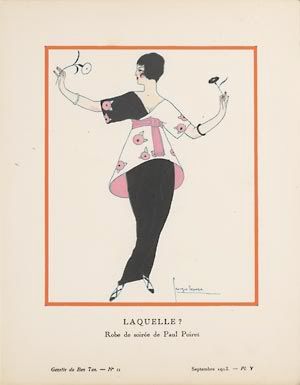
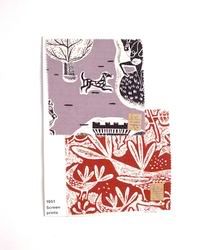

Slide 2: Arts and Crafts: design meets philosophy 1880-1910
Simplicity and honest use of materials negate historicism
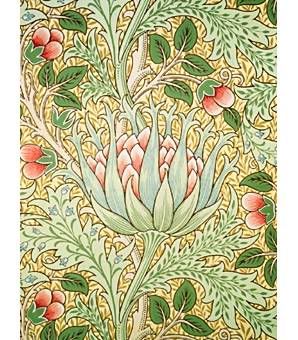
"Artichoke" wallpaper, by John Henry Dearle for William Morris & Co., circa 1897 (Victoria and Albert Museum).
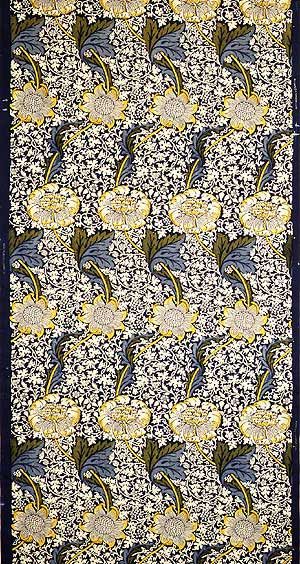
“Kennet” printed cotton, by William Morris, circa 1900, Metropolitan Museum of Art
Slide 3: Art Nouveau
Characterised by highly-stylised, flowing, curvilinear designs often incorporating floral and other plant-inspired motifs.
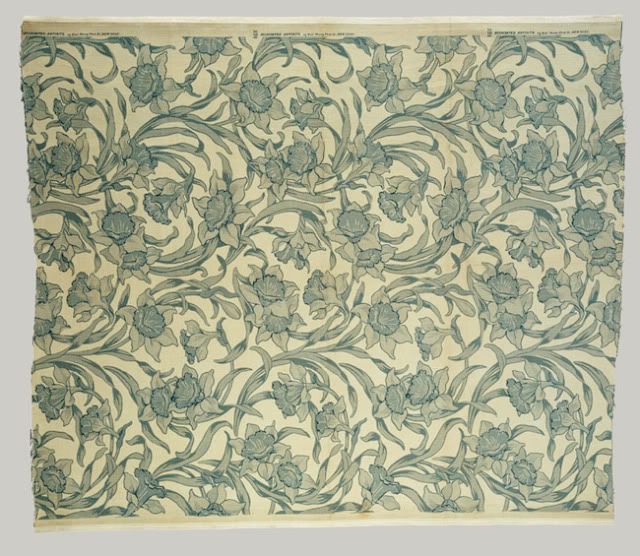
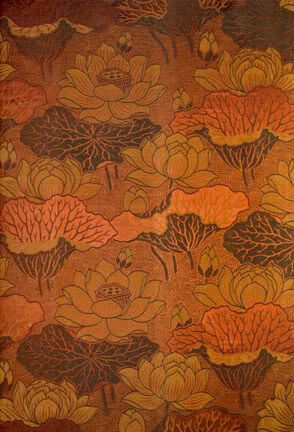
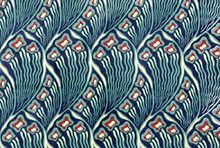
Slide 4: Art Nouveau in fashion
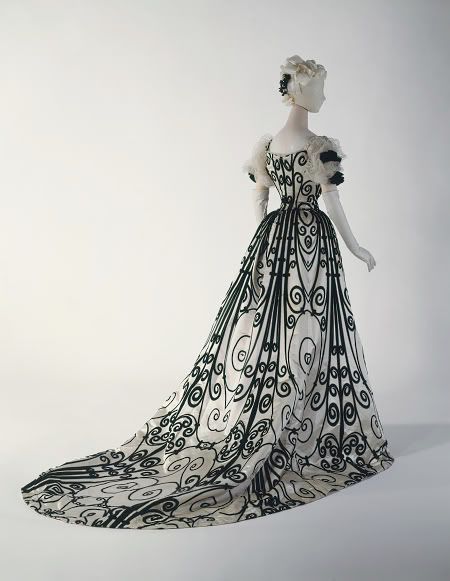
Evening dress, silk, House of Worth, 1898-1900, Metropolitan Museum of Art
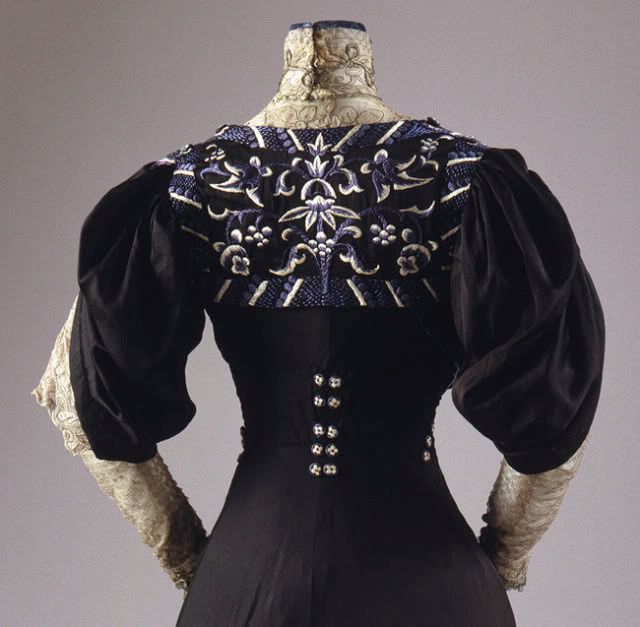
Dress, silk crepe embroidered with silk floss and ribbon, Jeanne Hallée, 1907, Metropolitan Museum of Art
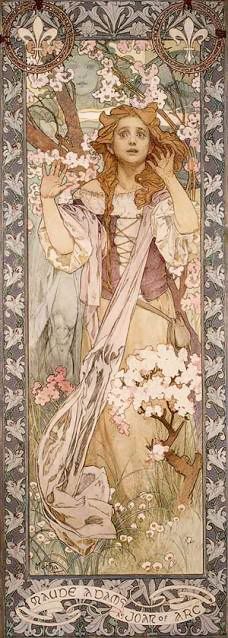
Slide 5: Art Deco: Pure decoration, 1920-1939
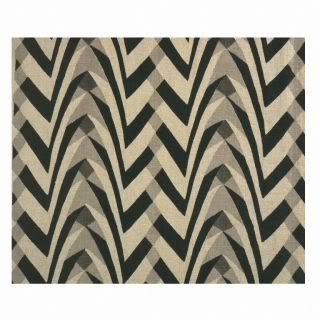
Furnishing fabric, F Gregory Brown, 1922, linen, Victoria and Albert Museum
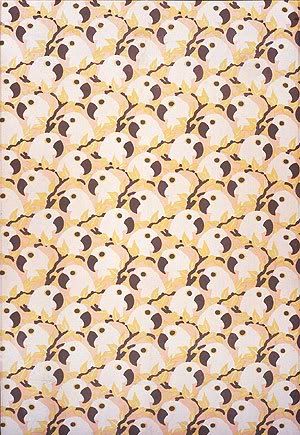
Printed silk-satin, Paul Poiret, 1911-1913, Metropolitan Museum of Art
Slide 6: Art Deco in Fashion
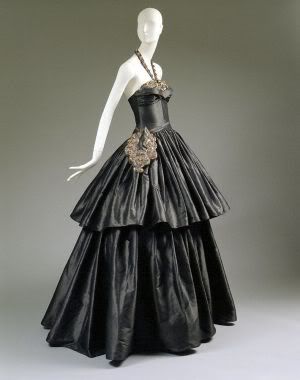
Cyclone Dress, House of Lanvin (Jeanne Lanvin), 1939, silk, spangles Metropolitan Museum of Art
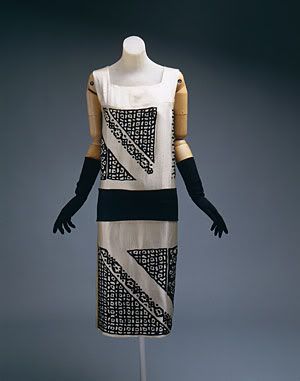
Dress, House of Lanvin (Jeanne Lanvin), 1924, silk, wool, Metropolitan Museum of Art
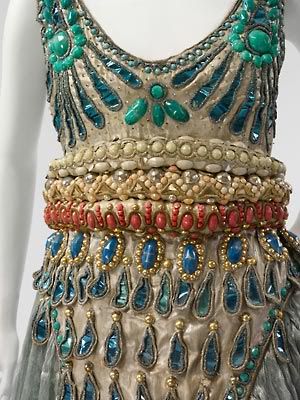
Fancy Dress Costume, 1911, Paul Poiret, Green silk gauze and gold lamé with blue foil appliqué and celluloid-bead embroidery, Metropolitan Museum of Ar
Slide 7: Bauhaus
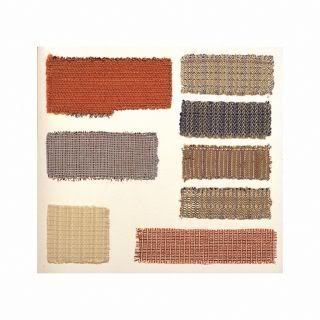
Textile sample, wool, silk, cotton, cellophane, Gunta Stölzl, 1927, V&A Museum
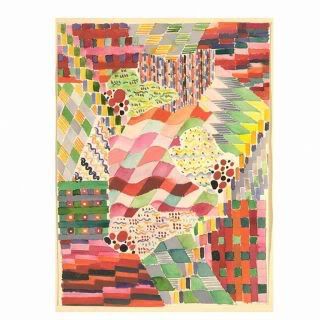
Design for a tapestry, Gunta Stölzl, 1927, V&A Museum
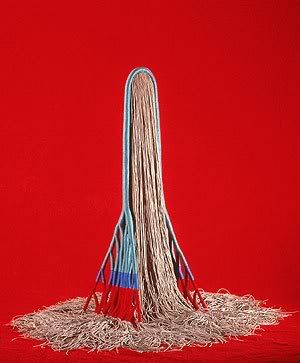
Tri-color arch, hemp and synthetic fibre, Claire Zeisler, 1983-1984, silk, wool, Metropolitan Museum of Art
Slide 8: Rayon and the rise of synthetic fibres
1940 – Nylon used in stockings as a replacement for silk
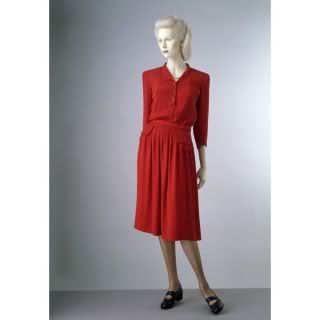
‘Utility’ dress, rayon, English, 1942, V and A
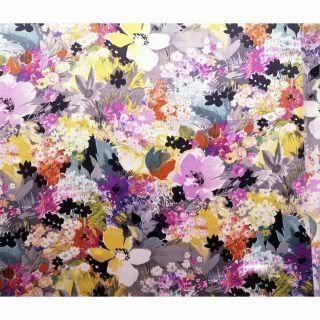

Dress, silk crepe embroidered with silk floss and ribbon, Jeanne Hallée, 1907, Metropolitan Museum of Art

Slide 5: Art Deco: Pure decoration, 1920-1939

Furnishing fabric, F Gregory Brown, 1922, linen, Victoria and Albert Museum

Printed silk-satin, Paul Poiret, 1911-1913, Metropolitan Museum of Art
Slide 6: Art Deco in Fashion

Cyclone Dress, House of Lanvin (Jeanne Lanvin), 1939, silk, spangles Metropolitan Museum of Art

Dress, House of Lanvin (Jeanne Lanvin), 1924, silk, wool, Metropolitan Museum of Art

Fancy Dress Costume, 1911, Paul Poiret, Green silk gauze and gold lamé with blue foil appliqué and celluloid-bead embroidery, Metropolitan Museum of Ar
Slide 7: Bauhaus

Textile sample, wool, silk, cotton, cellophane, Gunta Stölzl, 1927, V&A Museum

Design for a tapestry, Gunta Stölzl, 1927, V&A Museum

Tri-color arch, hemp and synthetic fibre, Claire Zeisler, 1983-1984, silk, wool, Metropolitan Museum of Art
Slide 8: Rayon and the rise of synthetic fibres
1940 – Nylon used in stockings as a replacement for silk

‘Utility’ dress, rayon, English, 1942, V and A

Dress fabric, screen printed silk and rayon blend, French, 1937, Victoria and Albert Museum
Slide 9: WWII, Rationing and Austerity
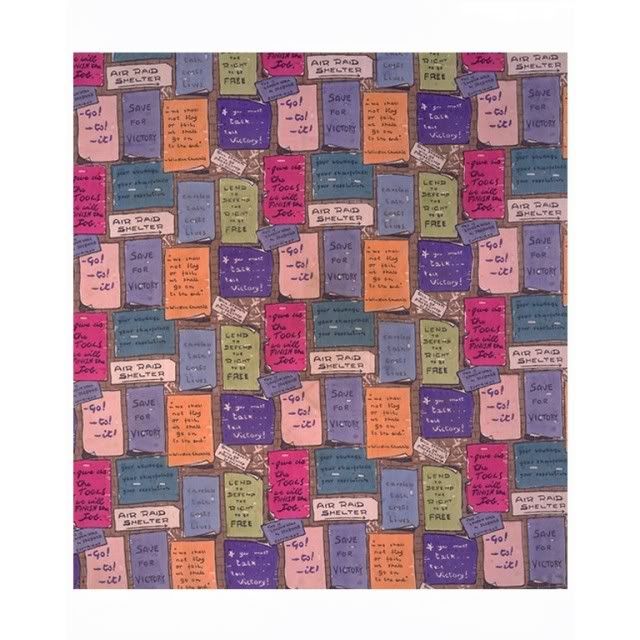
London Wall headscarf, printed rayon, Jacqmar, 1940s, Victoria and Albert Museum
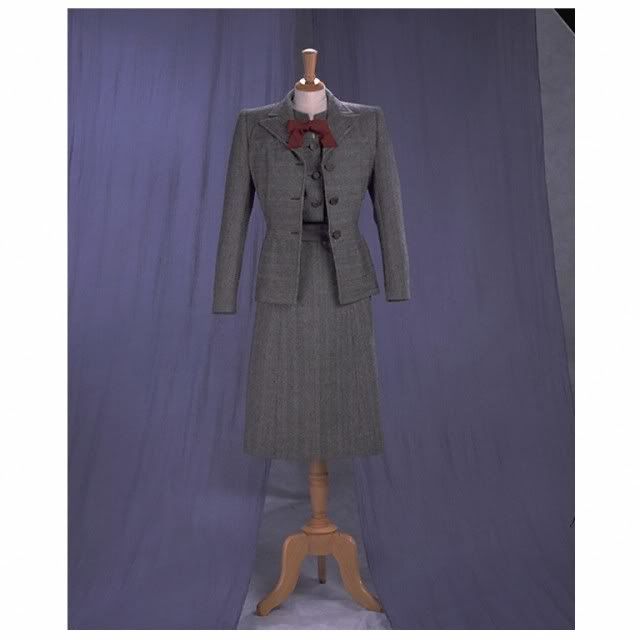
Original No. 16 suit, wool, Digby Morton, 1942, Victoria and Albert Museum
Slide 10: The New Look in fabrics
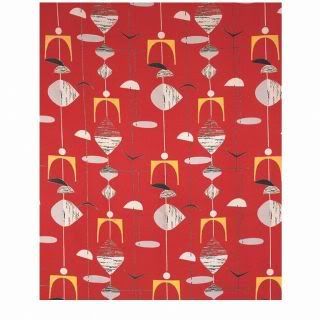
Curtain, screen printed cotton crepe, Marian Mahler for David Whitehead Ltd, c. 1952, Victoria and Albert Museum
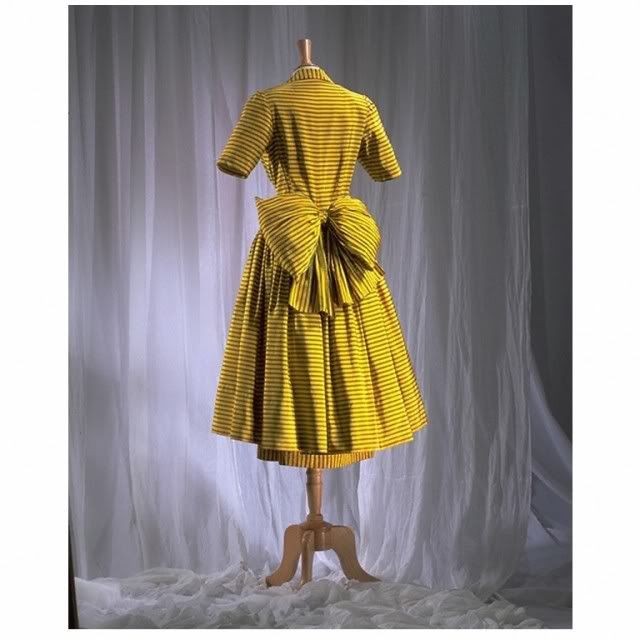
New Look dress, silk grosgrain, Victor Steibel, 1947, Victoria and Albert Museum
Slide 11: 1950’s: Prosperity and abundance
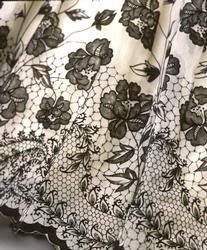
‘Lace’ printed cotton, 1950s, Design Collection at Bournemouth
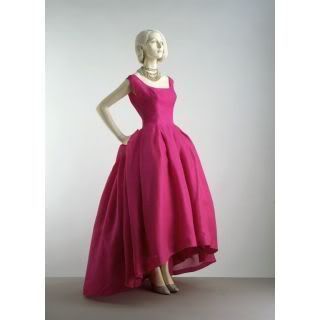
Evening dress, silk organsa, Jacques Heim/Juenes Filles, 1959, Victoria and Albert Museum
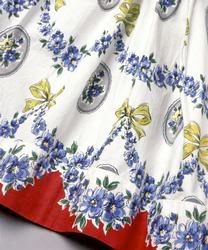
Evening dress, silk organsa, Jacques Heim/Juenes Filles, 1959, Victoria and Albert Museum
Slide 12: 1960s – Bright abstractions and ethnic inspiration
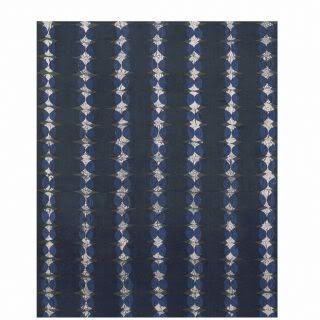
Furnishing fabric, indigo-dyed and block printed cotton, Susan Boscence, 1960, Victoria and Albert Museum
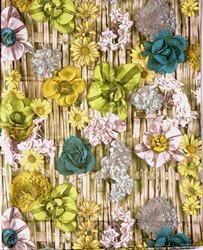
1960s glazed cotton, Design Collection at Bournemouth
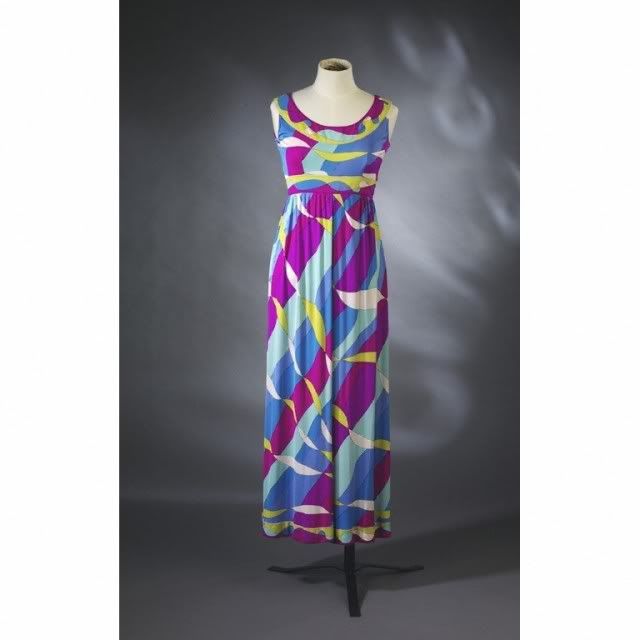
Trouser dress, printed silk, Emilio Pucci, 1968, Victoria and Albert Museum
Slide 13: Marimekko: Design as a complete lifestyle
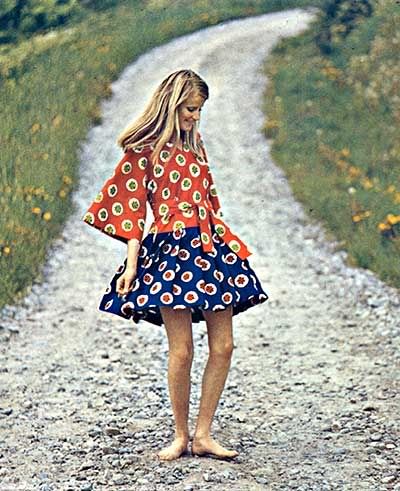
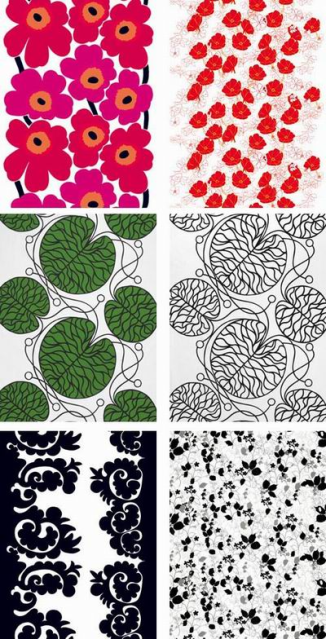
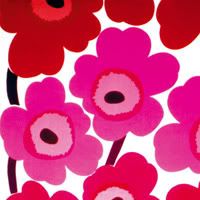
Marimekko’s iconic ‘Unikko’ pattern
Slide 9: WWII, Rationing and Austerity

London Wall headscarf, printed rayon, Jacqmar, 1940s, Victoria and Albert Museum

Original No. 16 suit, wool, Digby Morton, 1942, Victoria and Albert Museum
Slide 10: The New Look in fabrics

Curtain, screen printed cotton crepe, Marian Mahler for David Whitehead Ltd, c. 1952, Victoria and Albert Museum

New Look dress, silk grosgrain, Victor Steibel, 1947, Victoria and Albert Museum
Slide 11: 1950’s: Prosperity and abundance

‘Lace’ printed cotton, 1950s, Design Collection at Bournemouth

Evening dress, silk organsa, Jacques Heim/Juenes Filles, 1959, Victoria and Albert Museum

Evening dress, silk organsa, Jacques Heim/Juenes Filles, 1959, Victoria and Albert Museum
Slide 12: 1960s – Bright abstractions and ethnic inspiration

Furnishing fabric, indigo-dyed and block printed cotton, Susan Boscence, 1960, Victoria and Albert Museum

1960s glazed cotton, Design Collection at Bournemouth

Trouser dress, printed silk, Emilio Pucci, 1968, Victoria and Albert Museum
Slide 13: Marimekko: Design as a complete lifestyle



Marimekko’s iconic ‘Unikko’ pattern
So much gorgeousness! I'm overwhelmed!
ReplyDeleteaaaarrrrhhhh
ReplyDeleteoooooh, that wartime scarf is unbelievably awesome!
ReplyDeleteThat Gregory F Brown desgned for William Foxton 1922 is copied in vogue patterns V 1190
ReplyDeletehttp://voguepatterns.mccall.com/v1190-products-11328.php?page_id=939